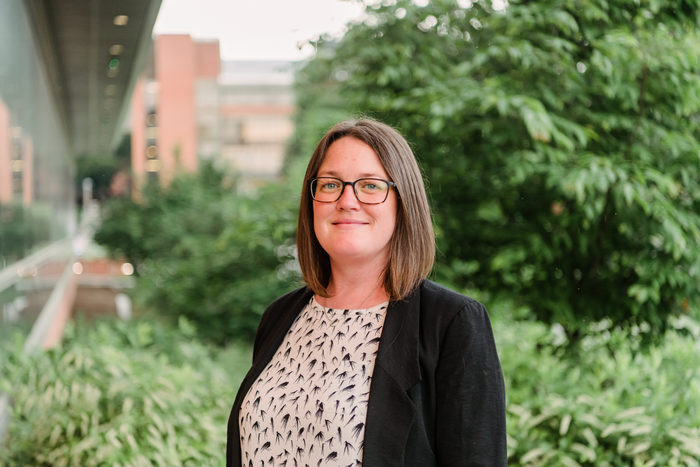Longstanding food insecurity problems in the U.S. and around the world, exacerbated by the pandemic, are projected to increase over the coming decades, as food, water, and energy demands increase and environmental crises worsen. With this in mind, the National Science Foundation (NSF) is investing $11 million toward solutions to address the nutritional needs of vulnerable and under-resourced communities through its Convergence Accelerator Program.

Credit: Marlayna Demond for UMBC
Longstanding food insecurity problems in the U.S. and around the world, exacerbated by the pandemic, are projected to increase over the coming decades, as food, water, and energy demands increase and environmental crises worsen. With this in mind, the National Science Foundation (NSF) is investing $11 million toward solutions to address the nutritional needs of vulnerable and under-resourced communities through its Convergence Accelerator Program.
UMBC’s Lauren Clay, associate professor and chair of emergency health services, is one 16 Convergence Accelerator awardees selected for Phase I of the program. Clay was awarded $624,000 for her project to improve food system resilience and decrease disaster-induced food insecurity in communities impacted by hurricanes.
Supporting food system resilience
Clay’s proposal explains that 11-15 percent of the U.S. population experienced food insecurity annually between 2008 and 2018, and households that are struggling with food insecurity before a disaster are at greatest risk for serious food access issues when a disaster strikes, and long after.
“Food and nutrition insecurity rates can increase threefold following disasters,” Clay notes. “Increased food and nutrition insecurity rates persist for years while households and communities recover.”
“Communities across the U.S. are planning for growing threats related to climate disasters. Food security is a basic human need and is highly susceptible to disruption when families and communities experience disasters,” says Clay. “I’m excited to work with a multi-disciplinary and multi-sector team to develop a new tool for measuring community food security to support communities planning for, responding to, and recovering from hurricanes.”
Converging on solutions
The NSF Convergence Accelerator Program seeks to address national-scale challenges in science, engineering, and society through a collaborative research process that brings together expertise from multiple scientific disciplines, known as convergence research. The food and nutrition focus was recently added to the Convergence Accelerator, which also includes approaches towards combating challenges related to population health and climate change.
“We hope to create a group of synergistic efforts that advance regenerative agriculture practices, reduce water usage, provide equitable access to nutritious and affordable food for disadvantaged communities, and spur technology and job creation,” says Douglas Maughan, head of the Convergence Accelerator, in NSF’s announcement of award recipients.
Over the course of nine months, Clay and her team will work to develop the Food Index for Resilience, Security, & Tangible Solutions, called FIRST. This index will measure food system functioning in communities and is intended to be a resource that can be used to respond to and recover from disasters and environmental changes.
This effort builds on Clay’s prior and ongoing research to address disaster-specific food insecurity issues. She was also recently awarded an NSF Faculty Early Career Development (CAREER) award to develop a sociocultural model called Food Environment in Disasters (FED) and other tools to improve the understanding and monitoring of food availability, acceptability, and accessibility during disasters.
Following Phase I of this project, participating teams will take part in a formal pitch and Phase II proposal and could receive up to $5 million of additional support. Selected Phase II teams will further develop their solutions and sustainability development plans over the course of 24 months, to rapidly meet the needs of global communities.




